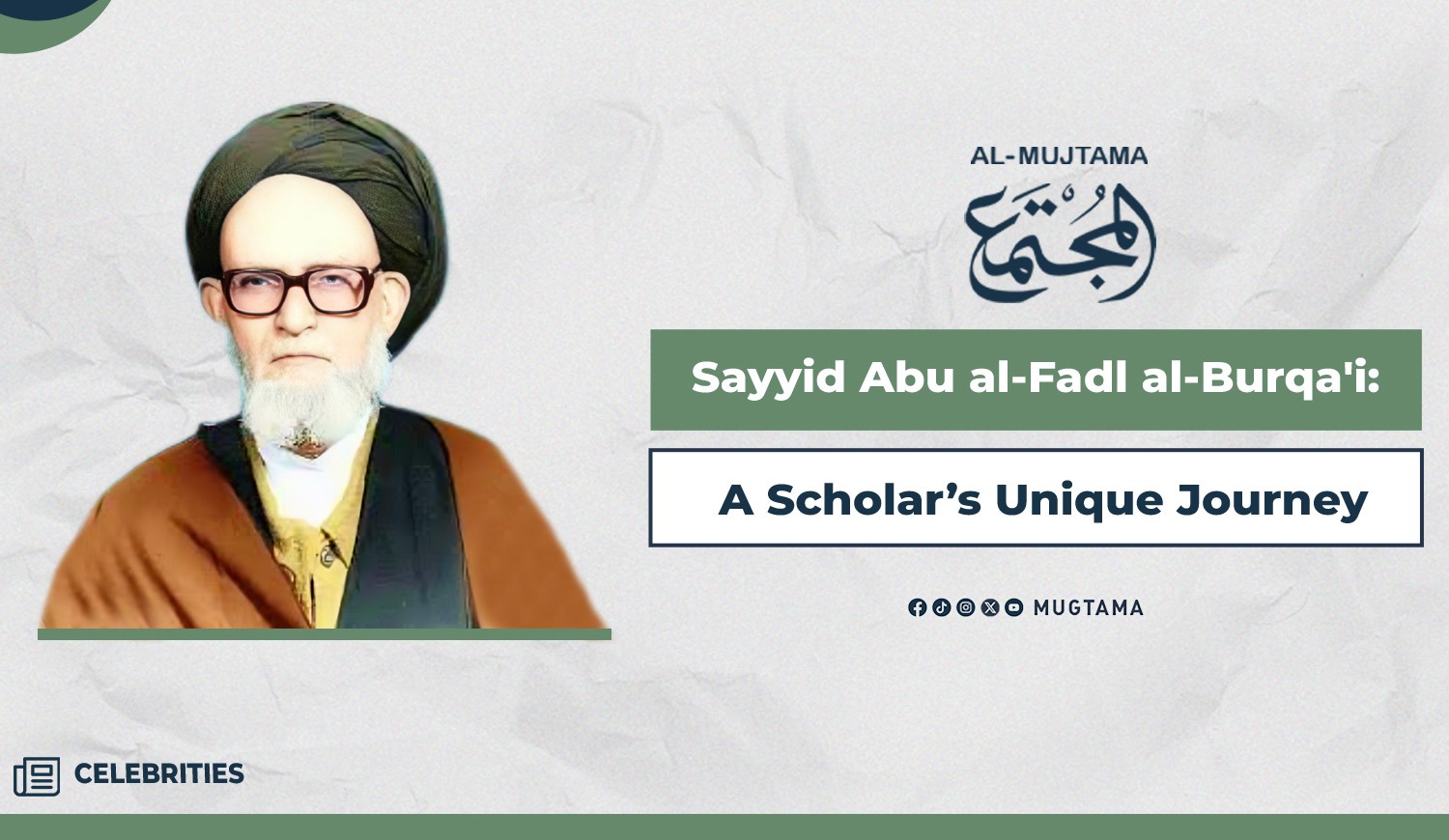Celebrity from Iran
Sayyid Abu al-Fadl al-Burqa'i: A Scholar’s Unique Journey

Sayyid Abu al-Fadl ibn al-Ridha al-Burqa'i al-Qummi (1908–1992 CE / 1326–1413 AH) is considered one of the most prominent Shi'i scholars of the last century who embarked on a daring intellectual journey. May Allah have mercy on him, he combined deep knowledge of traditional religious sciences with a fearless, reformist critique of inherited traditions that he deemed contrary to the Quran and reason. Consequently, he left a profound intellectual and literary mark that continues to inspire admiration for the man today.
Lineage and Upbringing
Al-Burqa'i was born in the Iranian city of Qom into an ancient scholarly family whose lineage traces back to Imam Muhammad al-Jawad through Sayyid Musa al-Mubarqa', who settled in Qom in the third century AH. Al-Burqa'i officially carried the title "Ibn al-Ridha" on his identity documents, affirming his descent from the family of the Prophet (Ahl al-Bayt). He also carried the title "al-Burqa'i" after his ancestor, Musa al-Mubarqa'.He grew up in a poor environment. His father, Sayyid Hassan,
was an ascetic who shunned worldly goods, worked with his hands to earn his
livelihood, and devoted himself to night prayers and the company of ordinary
people. His mother, Lady Sakinah Sultan, was a devout and ascetic woman from a
scholarly family; her father was Sheikh Ghulam Ridha al-Qummi, author of Riyadh
al-Husseini, and her maternal uncles were well-known preachers in Qom.
Early Education and Perseverance
Despite living in extreme poverty, al-Burqa'i insisted on seeking knowledge. Unable to afford tuition, he would sit next to paying students, listening to the teacher without receiving a private lesson or having a dedicated instructor. He collected white paper scraps from remnants in shops to write on, capitalizing on every opportunity to learn. He described this period in his book, Sawanih al-Ayyam (Experiences of the Days), as one of the hardest times in his life, yet the most blessed for acquiring knowledge.Academic Progression and Marja'iyya
Al-Burqa'i studied at the Hawza (Seminary) in Qom, where he was a colleague of Ayatollah Khomeini during some stages of his education. Leading scholars attested to his Ijtihad (independent reasoning) and brilliance. He began teaching and writing, eventually becoming one of the well-known Maraji' (Sources of Emulation) in Iran.However, he wasn't content with traditional teaching; he began
reviewing the Shi'i heritage with a critical eye, especially concerning exaggeration (ghuluw)
regarding the Imams, intercession
(tawassul), and certain narrations he saw as contradicting the Quran.
Intellectual Transformation and Reformist Critique
The most distinguishing feature of al-Burqa'i was his shift from tradition to criticism, and from indoctrination to verification. He authored several works that criticized prevailing books and concepts, including:- Kasr
al-Sanam (Breaking the Idol): A critique of Usul
al-Kafi, one of the most important books of the Shi'i school of
thought. Al-Burqa'i stated that Usul al-Kafi contained narrations
that contradicted reason and the Quran.
- Naqd
al-Muraja'at (Critique of al-Muraja'at): A
rebuttal to the book Al-Muraja'at by Abd
al-Husayn Sharaf al-Din al-Musawi, a foundational text of
modern Imami Shi'i thought.
- Sawanih
al-Ayyam (Experiences of the Days): His autobiography,
in which he recounts the stages of his life, his suffering, and his
intellectual transformations.
He also authored dozens of other books on Tafsir (exegesis), creed,
refuting ghuluw, and calling for a return to the Quran as the primary
source of religion. His total works amounted to over 77 books, some of which
were published in Riyadh, Cairo, and Beirut.
Confrontation and Persecution
Al-Burqa'i's path wasn't easy. He faced severe persecution from religious and political authorities in Iran, especially after Khomeini's 1979 revolution. He endured assassination attempts, was imprisoned more than six times, and was subjected to defamation campaigns with accusations of apostasy and heresy. Despite this, he persisted in his reformist call and established a mosque in Tehran that served as a platform for his ideas and for dialogue with scholars and students.Death and Legacy
Al-Burqa'i never left Tehran, despite the persecution he faced from successive Iranian religious governments. He died in Tehran in 1992 CE, after a life filled with scholarship and intellectual struggle. He left a rich legacy of books, articles, and lectures, along with an autobiography considered one of the most truthful accounts of the Shi'i Hawza and its scholars in the 20th century. Despite attempts to obscure his thought, his books are still read and debated, particularly in reformist and Quran-focused circles.May God have mercy on al-Burqa'i.
Al-Burqa'i represents a model of a Quran-focused Shi'i scholar who,
despite his deep affiliation with the Ahl al-Bayt, showed
boldness in criticizing the Shi'i heritage and a strong concern for Muslim
unity. He paid a heavy price for his stances but remained faithful to his
conviction that religion cannot be built on superstition, but on Revelation and
Reason.
Read also:











